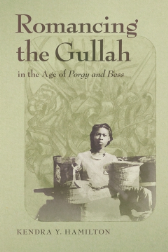A Response to “The Trouble With My Name”

The Puerto Rican and American flags together represent mixed heritage for the LatinX community, according to Dr. Javier Ávila.
October 4, 2021
AWARD-WINNING PERFORMER, Dr. Javier Ávila, told a story about the cultural experiences of LatinX Americans using anecdotal comedy and personal stories to commemorate the first ever LatinX Heritage Month keynote speaking on September 15th.
I had the privilege of attending the one-man performance of “The Trouble With My Name” by Dr. Javier Ávila, celebrated writer and professor of English at Northampton Community College. Before attending the event in Kuhne Auditorium, I viewed Dr. Javier Ávila’s website (linked at the bottom of the page) and found myself looking forward to the poetry segments.
After arriving, I immediately noticed the Puerto Rican-United States flag behind Avila. It made for a striking and juxtaposed image – perfect for a performance about being caught between two worlds.
When a person is caught between two worlds, the tendency is to split oneself down the middle: make a face for the public (in this case, the United States) and the private (family, other Latinos). Many people – not just Latinos – feel the need to hide themselves from society, the world and each other, but why and to what gain?
Ávila pointed out that Americans recognize and, voluntarily or involuntarily, make assumptions about members of the LatinX community. Latinos tend to hide their culture because they fear and resent being forced to play a stereotypical role. In some cases, they face outright discrimination.
In his poem “Denied Service,” Ávila recalled an unfortunate experience shared by many Latinos, an experience that became a source of inspiration for himself. While speaking Spanish at a local restaurant, he and his friend were met with prejudice from the waiter. In the poem, he considered whether or not her opinion would change if she knew all the sacrifices Puerto Ricans have made for the US, including his own grandfather, father, and uncle.
To claim the wealth of cultural experience sometimes means to claim pain and strife, but it also entails claiming beloved friends and family members, cherished memories and traditions. To accept one’s own perspective is the first step to accepting another’s perspective; one that is free of hatred, and filled with opportunity.
This is the central message behind Ávila’s performance: a series of anecdotes and poems about the trials and rewards of embracing one’s heritage.
In another poem, “Bloodlines,” Ávila reconciled his past with his present. Ávila considered his ancestors and those of his wife, a non-Latino, and how the history of both heritages inform their son to the very core. I myself have mixed heritage, so this poem hit home for me.
People of mixed heritage often feel pressured to identify more strongly with one identity than the other. In some cases, they may only identify with one of their cultures. In my case, I never identified strongly with my hispanic heritage because I wasn’t surrounded by that culture growing up. However, when I grew older and met people from different cultural backgrounds, I saw how distinct my culture was from theirs. This allowed me to appreciate my hispanic heritage and embrace it for the first time. I no longer think of myself as half-Mexican and half-American; I now think of myself as Mexican and American equally – a revelation many LatinX Americans come to eventually, as Ávila pointed out.
In her preview statement, Dr. Erin McAdams, Professor of Political Science, claimed Ávila’s performance would “make you LAUGH,” and she was correct. At one point in the presentation Ávila introduced the audience to a variety of Latino household staples. The most amusing of which was, in my opinion, a bottle of Vicks Vapor Rub, or “Bicks Bapor Ru” (for those who may be unaware, many native Spanish speakers cannot articulate the English sound for ‘V’; it always sounds like more of a ‘B’). He even showed the meager contents of the bottle because, in true Latino fashion, he already used most of it.
As a person of Mexican heritage and being one of the first people in my family to attend college, I greatly appreciated Ávila’s performance. For a long time, it was hard to imagine myself attending, much less graduating, college, because I didn’t see people like myself represented collegiately. Now, having attended an event whose guest speaker was an accomplished writer, professor and performer of LatinX heritage, such as Ávila, my goals seem a lot more attainable.
The Political Science Department and Multicultural Community Engagement partnered to ensure the LatinX community at Presbyterian College could see themselves represented on campus. Both entities put in a tremendous amount of work to make sure each event reflected the experiences of PCs LatinX community. McAdams and Rev. Racquel Gill, of the Office of Religious Life and Multicultural Community Engagement, were the main players behind this specific event.
The event safely maintained COVID protocol. Students had the option to view the presentation either from the comfort of their dorm or at one of two socially-distanced viewing parties held in Kuhne Auditorium and HP Amphitheater. Although I attended in-person, a majority of the audience attended online. This, however, did not compromise the strength and significance of Avila’s message.
To know more about Dr. Ávila and his content, visit his website at: https://www.javieravila.net/




